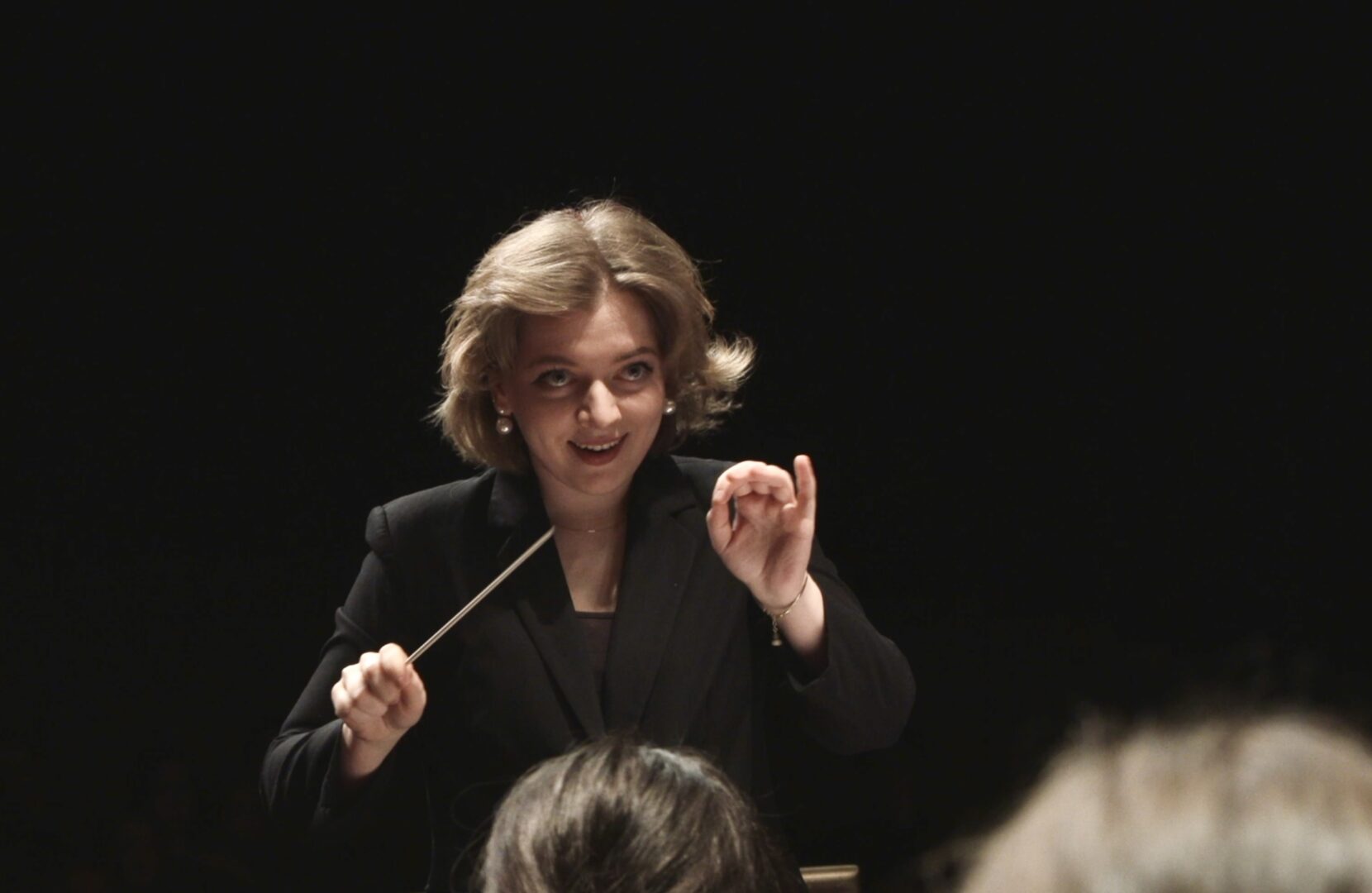Alright – so today we’ve got the honor of introducing you to Aleksandra Melaniuk. We think you’ll enjoy our conversation, we’ve shared it below.
Aleksandra, thanks so much for taking the time to share your insights and lessons with us today. We’re particularly interested in hearing about how you became such a resilient person. Where do you get your resilience from?
Probably from a mix of stubbornness, curiosity, and passion for music. Being a conductor is an unbelievably difficult life path, and I believe only those who are completely mad about it can survive the intensity, uncertainty, occasional loneliness, and constant self-doubt – it’s all part of the same landscape, and it’s the heart that drives the resilience. The truth is, I simply can’t imagine doing anything else. Even in the most difficult moments, I know I’d rather struggle with music than feel safe doing something that doesn’t move me – that doesn’t make me feel alive.
That’s also why resilience feels almost built into our lives as musicians. I don’t want to speak for everyone, but I can surely say this is true for most of us: we don’t really have working hours and leisure time. There’s no such thing as a 9-to-5; we live alongside music all the time. It shapes how we think, feel, rest, and dream. In an interview with David Dubal, Vladimir Ashkenazy was asked how much he works. He answered: “I actually don’t do anything except work. I don’t have hobbies. When I’m on holidays, I practice, I study scores – my whole life is focused on my profession.” And I believe most of us musicians would agree with that – even the greatest prodigies wouldn’t have succeeded if they weren’t resilient and relentlessly hard-working.
For me, resilience isn’t about pushing through at all costs, but about knowing what you want from this life and pursuing it without losing yourself in the game. Sometimes it means the road to success takes longer, but it’s always worth it. It’s also about learning to live with uncertainty – to make peace with the idea that not everything can be controlled, yet still move forward with focus and purpose.
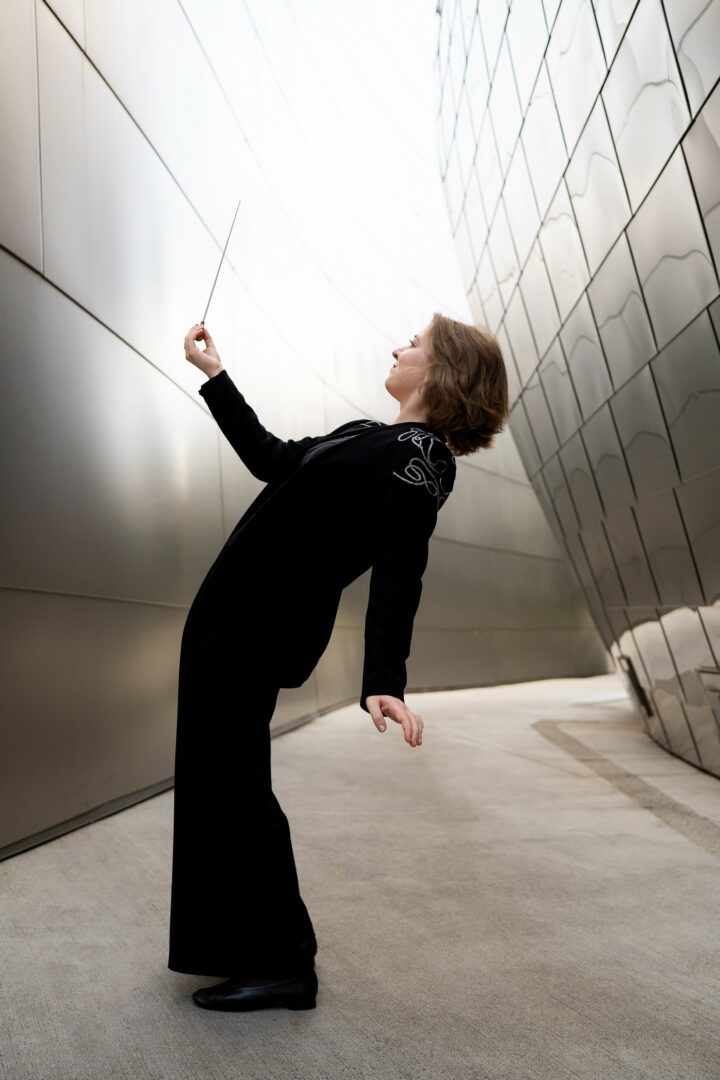
Great, so let’s take a few minutes and cover your story. What should folks know about you and what you do?
I’m an orchestral conductor – constantly balancing between art, psychology, and management. What I love most about it is being in the moment with musicians: when we breathe together, when we shape the music together, and something larger than all of us comes alive. Conducting isn’t about control; it’s about connection, trust, and empathy. And it never becomes routine. Every orchestra, every piece, every moment on stage demands complete presence – and that’s what keeps me endlessly curious and alive.
Right now, I’m the Salonen Conducting Fellow in the Negaunee Conducting Program at the Colburn School in Los Angeles, working closely with Esa-Pekka Salonen and orchestras across the U.S. and Europe. It’s truly a one-of-a-kind opportunity to grow – by assisting and observing rehearsals with some of the world’s finest orchestras – and I’m forever grateful it happened to me. This experience has completely transformed the way I perceive music. A few of the biggest milestones this year were my debuts with the Helsinki Philharmonic Orchestra (performing Lutosławski and Dvořák), with the San Francisco Symphony’s SoundBox series, and serving as Associate Conductor for Verdi’s La Traviata at Opera Holland Park in London.
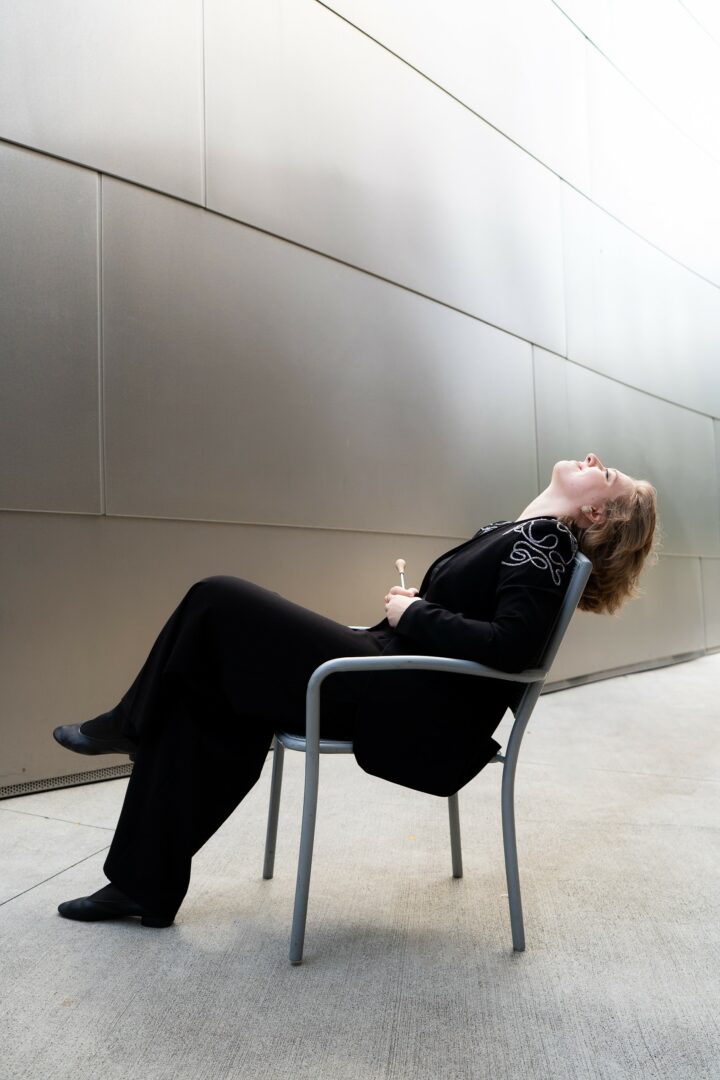
If you had to pick three qualities that are most important to develop, which three would you say matter most?
I’d say curiosity, emotional awareness, and resilience.
Curiosity, because this profession demands constant learning – not only about music, but about all the contexts around it: history, languages, literature, psychology. Every score opens a different world, and you need to be hungry to explore it. The more one knows ‘around’ the score, the brighter the picture one can later paint with music.
Emotional awareness, because conducting is all about people. You can know every note in the score, but if you don’t know how to communicate, to listen, to make others feel seen and inspired – nothing truly happens. Music comes from trust. And one has to remember that rehearsing with an orchestra is, in a way, managing 60 to 100 people – and so many things can happen. Someone might be late because of traffic, someone’s milk expired, someone’s cat needs an emergency vet appointment. The conductor has to deal with people, understand that everyone carries their own small daily chaos – and still find a way to make music together.
And finally, resilience again – as I mentioned earlier, you either love this with your whole being or not at all. Music is a demanding partner, and one has to be strong and determined to keep going when things are uncertain. There’s no middle ground.
For those at the beginning of their journey, I’d say: be brave, be bold, and be humble. Find someone who inspires you, from whom you can learn – and stay curious. Study music, read books, watch films. Read about history, philosophy, everything that surrounds the art. Try to understand what Beethoven might have felt while writing *Eroica*, as Napoleon was taking over Europe. Take time to build your foundations -and above all, grow as a human being.
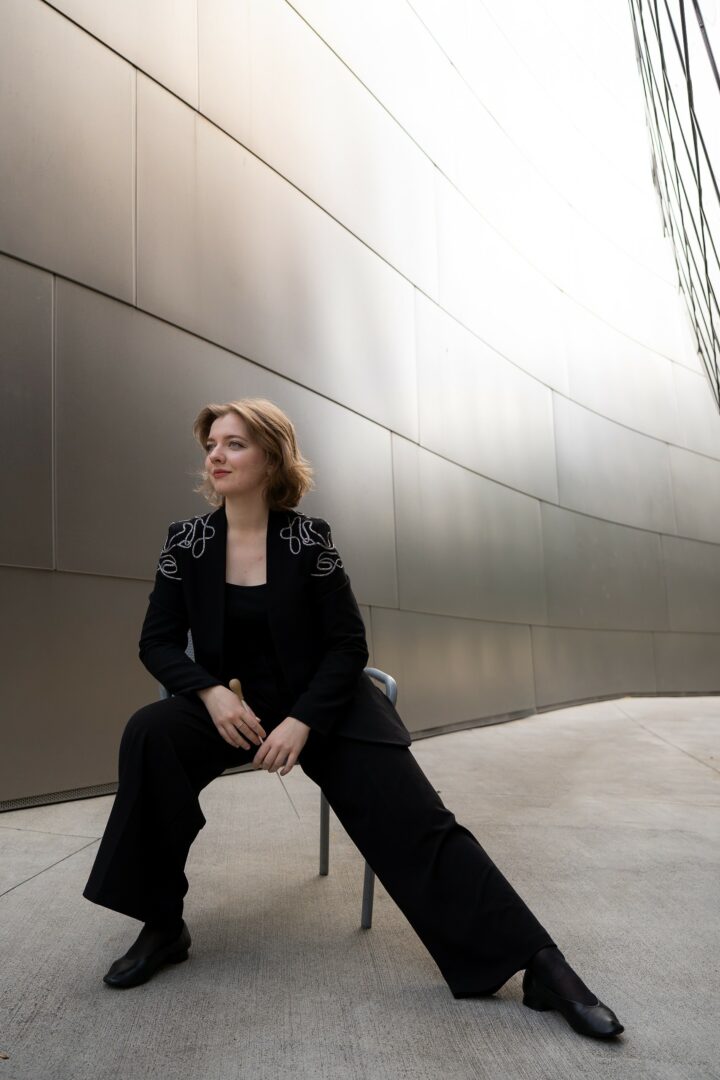
Before we go, any advice you can share with people who are feeling overwhelmed?
When I feel overwhelmed, I try not to fight it. I let myself pause – breathe, call my family or friends, go for a walk or just stay quiet for a while. Pretending to be fine never works; acknowledging that I’m tired usually does. Sometimes I go back to music, but not to study – just to listen, to remind myself why I chose this life. I think the best advice is to accept that it’s normal to feel small sometimes. We give so much of ourselves to this profession, and it’s okay to need a moment to simply be human again.
Contact Info:
- Website: https://www.aleksandramelaniuk.com/
- Instagram: https://www.instagram.com/amelaniuk/
- Facebook: https://www.facebook.com/amelaniuk/
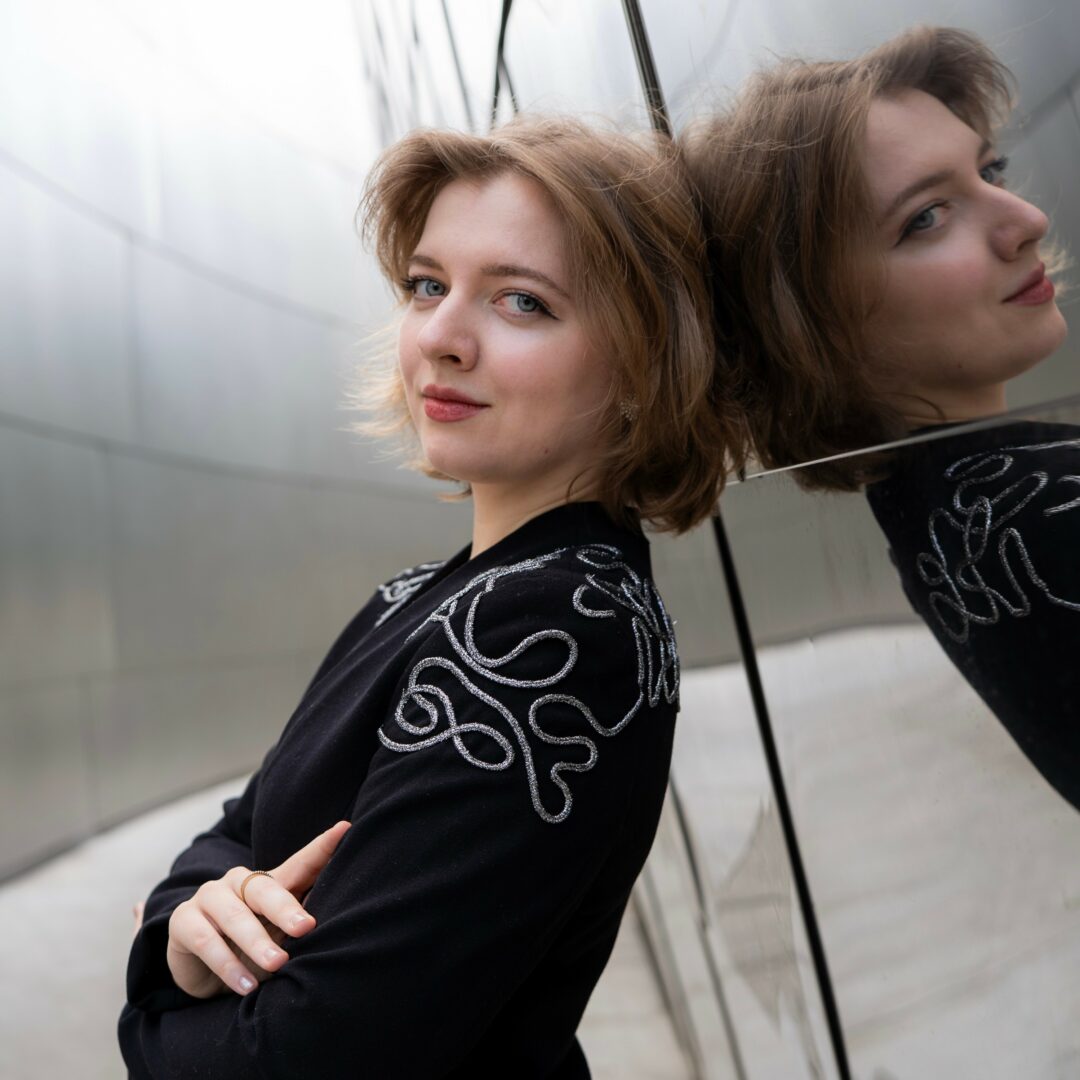
Image Credits
Polina Cherezova
so if you or someone you know deserves recognition please let us know here.

